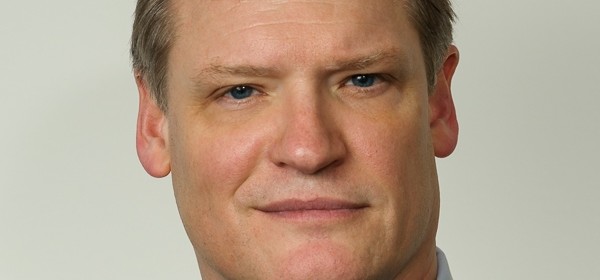What do medicine, Japanese, anthropology and CST have in common?
In addition to being an accomplished physician, Dr. Keith Dipboye has a MD-PhD in anthropology. He speaks fluent Japanese. And he’s just taken on his next big challenge as Chief Clinical Information Officer with the Clinical and Systems Transformation (CST) project.
Just over a month ago, Keith made the move from Seattle to join the CST project after spending the last 15 years at Seattle’s Virginia Mason Hospital and Medical Center as a general internist. When he learned of the opportunity to join the project, he knew it would be a great fit. At Virginia Mason, Keith has been a pioneer of industry-leading work with the application of lean methodology to clinical information systems and quality improvement.
Lean is a management philosophy first developed by vehicle manufacturer Toyota in the 1980s to eliminate waste in a manufacturing system. The approach has been applied in many other industries, including our health organizations.
“Virginia Mason is somewhat famous for being the first place to really apply lean to improve healthcare quality,” says Keith. “We’ve shown at Virginia Mason that you can apply these methods and significantly improve quality outcomes of things like sepsis or length of stay, while simultaneously building a learning culture and lowering the cost of care.”
Keith says he was attracted to the CST project because it’s leveraging ideas like this to get better results across multiple health organizations. He was also impressed with the project’s focus on both clinical and systems transformation. It is all too common to think of an Electronic Medical Record (EMR) implementation as something the IT department does, he says.
“Too often on projects like this, people expect that just putting in an EMR will likely lead to quality improvements, when in fact, putting in an EMR can improve some things – like give you access to information quickly – but it doesn’t automatically make everything safer and better. You really have to intentionally transform your clinical processes or else you wind up creating safety defects at the speed of light.”
As a front-line clinician who has used clinical information systems built by Cerner (the CST project’s vendor partner) for nearly 15 years and knows what works – and what doesn’t – in a busy care setting, Keith hopes to bring that important perspective to this new role.
“Success for CST will be a transformation that is not only implemented, but sustained in a way that makes clinicians feel their needs have been addressed, and that the system is helping them to provide the best possible care.”
In the short time he’s been with CST, Keith has been impressed with the caliber of the people he’s met – both in terms of smarts and dedication.
“Everyone here understands we’re not just doing an IT project; we really are making systems that are going to improve the health and well-being of folks in this area and save lives.”

